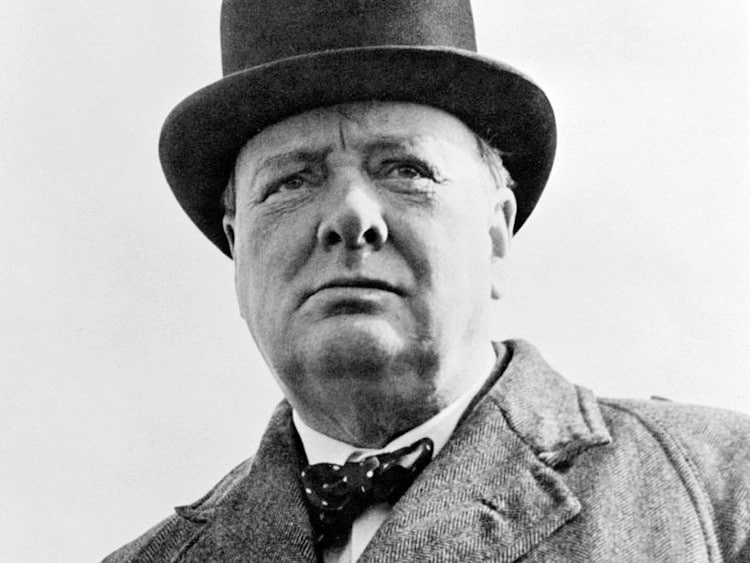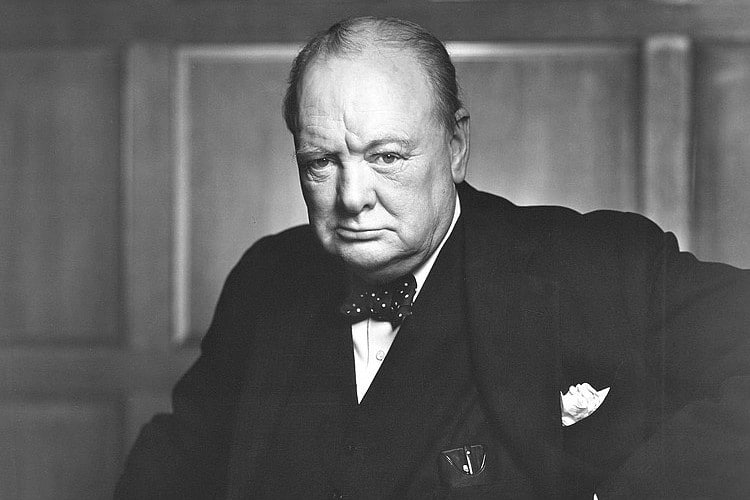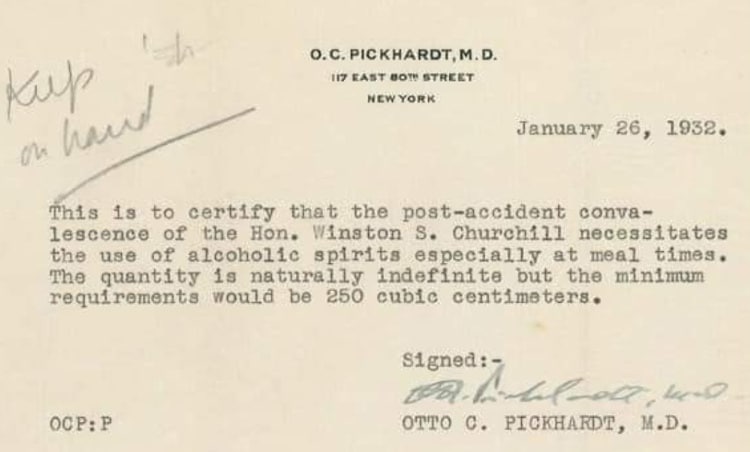
Photo: United Nations Information Office, New York via Wikimedia Commons (Public domain)
Winston Churchill is best remembered for leading the UK through World War II. Perhaps a lesser-known part of his legacy that predates WWII is his trip to the U.S. during the Prohibition era. In December 1931, Churchill was in his “Wilderness Years,” holding to his parliament seat but out of office. After taking heavy losses during the Great Depression, he set out on a lecture tour around the U.S. During his time in New York, he planned to visit businessman Bernard Baruch, a friend who had served as political consultant during the first World War. Running late, Churchill took a cab. As he was crossing Fifth Avenue, he was hit by a car—resulting in a head wound, a broken nose, two cracked ribs, and bruises all over his body.
After a period of hospitalization and recovery in New York, Churchill and his family left for the Bahamas for some rest. With the burden of his financial worries, he managed to reschedule many of his speaking engagements. Still dealing with the pain from the accident, Otto Pickhardt, the admitting physician at Lenox Hill Hospital, where he was treated, came to his aid with a singular prescription for alcohol.
“This is to certify that the post-accident convalescence of the Hon. Winston S. Churchill necessitates the use of alcoholic spirits especially at meal times,” wrote Pickhardt. “The quantity is naturally indefinite but the minimum requirements would be 250 cubic centimeters.” A note in pencil reads: “Keep on hand,” likely to get around the restrictions promptly.
This particular prescription has made it into history books, but alcohol prescriptions were not rare during Prohibition. It was common for doctors to recommend alcohol before and during this era, and alcohol was readily available at drugstores. Physicians wrote an estimated 11 million prescriptions a year throughout the 1920s, and many bootleggers even bought prescription forms from doctors.
Prohibition was lifted in 1933 with the ratification of the 21st Amendment. This made it the only time in American history in which a constitutional amendment was passed for the purpose of repealing another. As for Churchill, he was quick to notice the menace of Hitler’s regime, and became Prime Minister in 1940—becoming a key player in the allies’ victory in World War II.
A trip to New York made Winston Churchill part of the history of the Prohibition era.

Photo: Yousuf Karsh via Wikimedia Commons (Public domain)
Dealing with the painful aftermath of being hit by a car, he was prescribed “alcoholic spirits especially at meal times,” by his doctor.

Photo: C. Pickardt Wikimedia Commons (Public domain)
h/t: [Open Culture]
Related Articles:
Listen to 14-Year-Old Elizabeth Deliver Her First Speech to the British People During World War II
Designer Reimagines What Historical Figures Would Look Like Today
The National WWII Museum Dedicates Itself to Honoring America’s Role in the War
95-Year-Old World War II Veteran Teaches History He Lived Through
